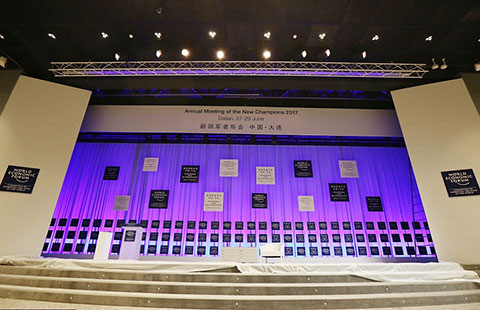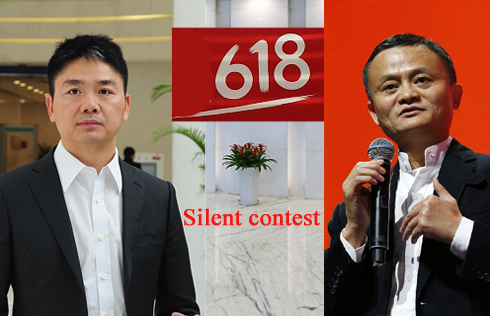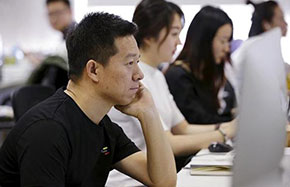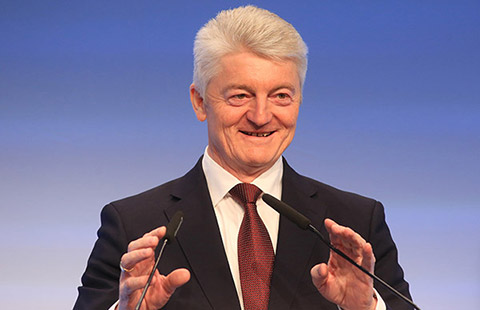Plastic is fantastic for Chinese company in US
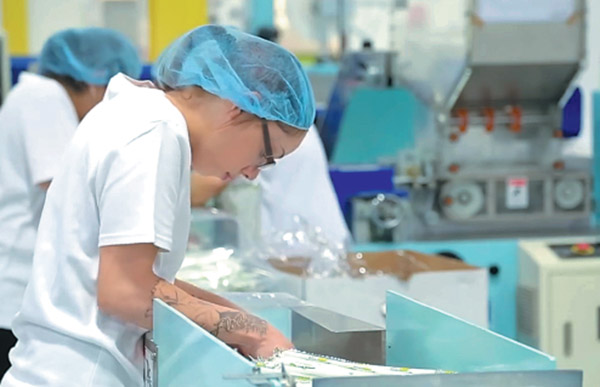 |
|
Workers at Fuling Plastic USA pack straws that have been individually wrapped in paper sleeves. The plant in Pennsylvania, US, manufactures five to six metric tons of straws a day. [Photo/China Daily] |
Figures show a growth in jobs in Pennsylvania as the Fuling factory hires people and Chinese investors pour money into emerging sectors
Thousands of colored and transparent straws whirled through machinery, each getting wrapped in paper sleeves to keep them sanitary.
The individual straws then moved on a conveyer belt and were bundled together by the hundreds.
Sealed in clear plastic pouches, they were boxed and shipped across the United States to fast-food chains such as Subway, Taco Bell and Wendy's.
This is the inside of the two-year-old Fuling Plastic USA factory in Allentown, Pennsylvania. The company is a unit of Fuling Plastics Co Ltd based in Zhejiang province in eastern China.
The plant has 37 employees and makes straws-approximately five to six metric tons every day-but it may produce plastic food containers by 2018 or 2019, according to the company.
Fuling's four factories in China produce disposable forks, knives and containers.
Hu Xinfu, chief executive officer of Fuling Plastic, said that 90 percent of the group's products are exported to the US, but the cost of doing that is very high.
"We felt it was a good choice to invest in the US," he said. "We may save the transportation costs to pay more wages to our American workers."
The 88,000-square-foot factory is part of the company's $21 million investment in the US, and may already be paying off.
First-quarter earnings for this year were $1.4 million, compared to $700,000 for the same period last year. Sales rose 28 percent to $26.3 million.
Hu confirmed in a statement that he was "pleased" with the year-on-year growth and was optimistic that results will continue to improve.
Gilbert Lee, chief financial officer, felt the main goal of the Allentown factory was to increase sales in the US, the biggest market for Fuling's products.
Because it manufactures in China and the US, Fuling can decide where to make its products based on labor and production costs.
"Even though the labor costs in the US are much higher than in China, if we can utilize automation and higher volume, then we can save on costs from having to ship from China," he said.
"That will create a much more cost-competitive advantage for us to compete in the US, and allow us to bid on higher volume contracts with the larger QSR (quick service restaurant) chains," he added.
Lee noted another advantage. By bringing production to the US, it creates a "much better image".
"It (shows the products are) made here, and a lot of the customers such as Wal-Mart and other companies will find it very favorable to buy our products in the US," he said.
The company's listing on the NASDAQ also adds credibility to its operations, Lee pointed out, and "doing business with us is just like doing business with a US company".
Fuling's economic impact on Lehigh County, where Allentown is located, has been minimal because of the small number of employees at the factory.
But Lee stressed that Fuling will help the area's economy grow as it expands.
Entry-level wages are about $11 to $13 an hour while technicians can earn up to the mid-$20s per hour, depending on experience.
Ed Stagemyer, who oversees employees and production on the factory floor, acknowledged that the company has had a positive impact on Allentown.
"We sometimes hire temps from this area if we get into a busier season and it's been good. It's brought more jobs," he said.
"The plant is small right now, but it's growing, so it's going to have even more of an impact on the area," he added.
Gary Borochaner, a logistics manager who has been with the company for about two years, echoed similar sentiments.
"I have had the opportunity to see (growth) because we've had to add people as we've grown," he said. "I'm one of the longest-tenured people here now."
Many of the company's employees talked about the fast-pace of production lines, due in part to the high level of automation.
"I've only been here for about two months, but we've had some good training," said Dylan Frey, a lead technician. "There's a lot more automation and it's been fast-paced, but it's a good job."
Manufacturing in Lehigh Valley, the name given to the metropolitan area of Lehigh, Carbon, and Northampton counties, makes up the largest part of the region's economic output.
 |
|
Don Cunningham, president and CEO of the Lehigh Economic Development Corporation. [Photo provided to China Daily] |
A selling point for Fuling to put its factory in Lehigh Valley was the region's proximity to the rest of the Eastern seaboard and the Port of Newark, providing easy access to about 30 to 40 percent of the company's US customers.
Fuling had scouted six or seven states before choosing Lehigh Valley, where the development agency worked with the state to produce an incentive package for Fuling.
Cunningham admitted it was "somewhat of a ground-breaking approach" by Fuling to open up a manufacturing operation in the US.
"The company started by manufacturing straws and is now trying to grow that into a profitable plant for Fuling globally," he said.
In China, the firm's leaders have been "vocal advocates" for Lehigh Valley, which Cunningham said is "on the radar" enough with Asia-based manufacturers that it plans to send representatives to China to meet with potential investors.
There are two companies that are looking to invest in the region, he added, but declined to name them.
Cunningham was the first to admit that it will be difficult for the manufacturing sector in the US to produce as much as it used to or for job numbers to be as high as they had been historically.
But Lehigh Valley has a skilled workforce that could be useful for Chinese companies looking to locate in Pennsylvania.
"In China there is movement for the smaller, non-state-owned companies to get plants closer to customer bases overseas because of the demand for labor in China," Cunningham said.
"I think there is converging opportunity, both in manufacturing policy in China and what we have available here," he added.




